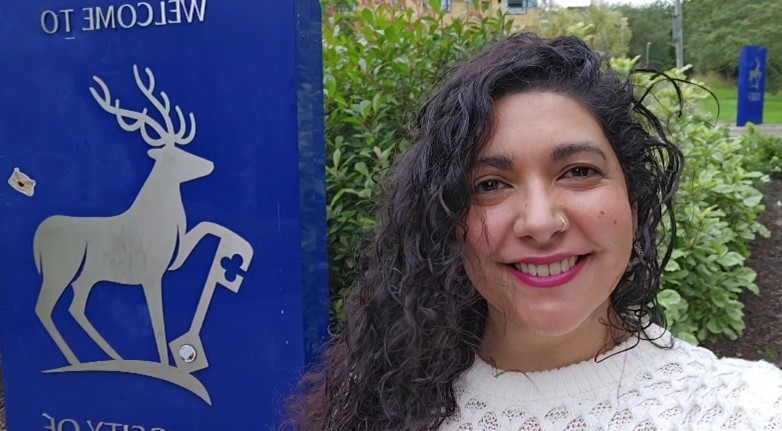My experience as a visiting researcher: expanding network, knowledge exchange and collaboration, by Dr Karina Corada
- mahmed726
- Oct 1, 2024
- 3 min read
Updated: Nov 25, 2024
In April 2024, I applied for a Knowledge Exchange Visits programme offered by RECLAIM at the University of Surrey. I applied, hoping to extend my professional network beyond my home institution, the University of East London. As an early career researcher, I saw this as an opportunity to collaborate with other universities and experts in my field. What I gained, however, was far more enriching than I had anticipated.
When I first saw this opportunity, my initial question was, what exactly is a visiting researcher? Simply put, a visiting researcher is someone who temporarily works at another university or research institution to achieve specific goals—whether it’s collaborating on a project, publishing research, or exploring new methodologies.
In my case, I spent three months, from May to July, at the University of Surrey, participating in the RECLAIM + Network Plus research group. Every Thursday, I made the journey to Surrey to immerse myself in their beautiful green campus which, fitting incredibly with my research, focuses on the impact of green infrastructure on urban life.
Green spaces at the University of Surrey campus during my visiting researcher experience. Credits: Karina Corada
The aim of my visit was to expand our understanding of Green-Blue-Grey Infrastructure (GBGI) and its effects on urban environments. I had the privilege of working alongside Professor Prashant Kumar, the Founding Director of the Global Centre for Clean Air Research (GCARE) at the University of Surrey. During this time, I had the opportunity to learn about the research projects that the team is working on and explore potential new collaboration opportunities. If you want to know more check here for a video presentation.
The visit involved three key activities, such as preparing a peer-reviewed manuscript on the Clean Air Garden project (if you want to know more about this click here) and exploring funding and collaboration opportunities between the Sustainability Research Institute (SRI) and RECLAIM Network Plus. One of the main activities, however, was publishing a research paper on air pollution and GBGI. We worked to finalise a research paper that examines how 51 types of GBGI influence air quality.
This collaborative research paper, titled “Air Pollution Abatement from Green-Blue-Grey Infrastructure”, which is a first-of-its-kind, is a meta-analysis of how different types of GBGI affect air quality. The paper is a comprehensive review involving 32 researchers and provides much-needed data on the potential of urban green infrastructure and its impact on air quality. For example, we found the 22 different GBGI studied provide an average reduction in air pollution of 16±21%, with substantial reduction shown by linear features (e.g., street trees and hedges) (23±21%), parks (22±34%), constructed GI (e.g., green walls) (14±25%), and other non-sealed urban areas (e.g., woodland and grassland) (14±20%). However, the effectiveness of these infrastructures depends greatly on the urban environment and design, highlighting the need for careful urban planning.
I am sure that this visit was just the beginning of a longer-term collaboration between the University of East London and the University of Surrey. We are already discussing future research projects and potential funding sources to continue exploring the benefits of GBGI in urban environments.
I’m incredibly grateful for this opportunity, which not only advanced my career but also contributed to meaningful research that can impact public health and environmental sustainability.
If you’re interested in learning more about the role of visiting researchers or the effects of green infrastructure on air pollution, feel free to contact me at kcorada@uel.ac.uk. I’d be happy to discuss these topics and share insights from my experience!
Dr Karina Corada is a Research Fellow in the Sustainability Research Institute (SRI) at the University of East London (UEL). Dr Corada is an interdisciplinary environmental chemist with expertise in air quality and green infrastructure. Her research focuses on addressing urban environmental challenges and promoting green justice by implementing thoughtful green infrastructure.

%20(1).png)









Comments